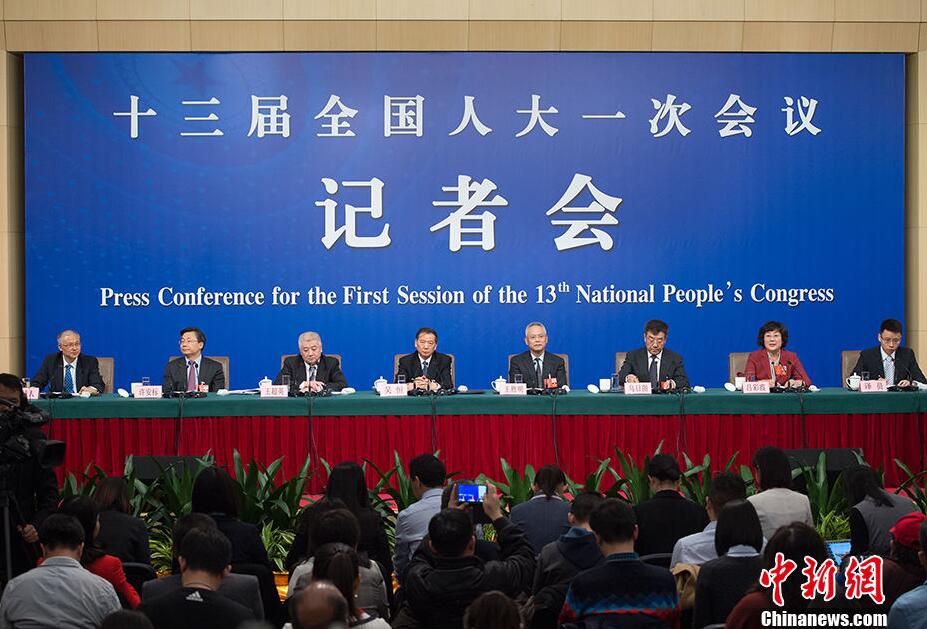
Performance system refers to the management system established to evaluate employee performance and improve employee work ability and quality. It is an important part of enterprise management and one of the cores of enterprise management.
Performance management system refers to the continuous cycle of managers and employees at all levels to participate in the formulation of performance plans, performance coaching and communication, performance appraisal and evaluation, application of performance results, and the improvement of performance goals in order to achieve organizational goals.
Performance management system refers to the continuous cycle of managers and employees at all levels to participate in the formulation of performance plans, performance coaching and communication, performance appraisal and evaluation, application of performance results, and the improvement of performance goals in order to achieve organizational goals. Construction Aspect Part I The development of the performance management system has gone through three processes: assessment and performance appraisal, and the formation of a performance management system.
Human resources performance management system refers to a comprehensive and systematic management system, which aims to improve the work efficiency and performance of enterprise employees by setting goals, evaluating performance, feedback and motivation. It mainly includes the following links: Goal setting: The first step of the human resources performance management system is to set goals.
Performance management system is a comprehensive management.The system usually includes the following aspects: Setting performance goals: Enterprises need to formulate clear performance goals, including business goals, financial goals, customer satisfaction goals, employee development goals, etc., to ensure that performance goals are consistent with the strategic goals of the enterprise.

1. Key Performance Indicators (KPI), also known as Key Performance Indicators, Important Performance Indicators, Performance Evaluation Indicators, etc., refers to the most important indicator to measure the effectiveness of a management work, and is a data management It must be an objective and measurable performance indicator.
2. What does KPI mean? In layman's terms, KPI refers to key performance indicators, which is the abbreviation of KeyPerformanceIndicator.
3. What is KPI assessment? KPI assessment, the abbreviation of KeyPerformanceIndicator, refers to the key performance indicator assessment method. Divided according to the management theme,Performance management can be divided into two categories. One is incentive performance management, which focuses on stimulating employees' enthusiasm for work, which is more suitable for enterprises in the growth period.
4. KPI is a key performance indicator. In fact, it is to formulate plans and goals, and then score according to the completion. KPI is a management tool when an enterprise management structure is divided into multiple layers, and the company's executives control the grassroots movement. The core of KPI is the weight of various work achievements and The weight determines the distribution of power to the senior management of the company.
5. The full name of KPI is Key Performance Indicator, that is, key performance indicators. It is a set of key indicators used by enterprises or organizations to measure business and work performance. It can be used to evaluate work performance, monitor whether the goals are achieved and guide business. Decision-making.
6. KPI assessment, the abbreviation of KeyPerformanceIndicator, refers to the key performance indicator assessment method. According to the management theme, performance management can be divided into two categories. One is incentive performance management, which focuses on stimulating employees' enthusiasm for work and is more suitable for enterprises in the growth period.
1. [Answer]: Step: A Through the strategic map, the key performance indicators of the enterprise can be established, and the strategy of the enterprise can also be decomposed into a series of "strategic measurement goals", that is The contents of the strategic map.
2. Determine business goals: First of all, clarify the business goals of the enterprise and transform them into measurable specific indicators, such as sales, customer satisfaction, production efficiency, etc.Formulate an index system: according to the business goals and actual situation, formulate an index system that meets the characteristics and needs of the enterprise.
3. There are generally two ways to establish a KPI system: one is to decompose according to the organizational structure, from goal to means; the second is to decompose according to the main process, that is, from goal to responsibility method.
4. Clarify performance goals: The performance appraisal system should have clear performance goals, which should be consistent with the strategic goals of the organization and the job responsibilities of employees. Performance goals should be specific, quantifiable, achievable, and able to stimulate employees' enthusiasm and work motivation.
5. Establishing a performance appraisal system for supply chain quality management can help enterprises evaluate the effect and improvement direction of supply chain quality management, and promote the continuous improvement of supply chain quality.
1. The KPI system refers to the collection of Key Performance Indicators, which is a framework for managing and evaluating the strategy, goals and performance of an enterprise or organization.
2. The KPI index system indicates the results that should be generated by each work content or the standards that should be met, so as to quantify the best.
3. KPI indicators include: performance indicators, behavior indicators, prevention deduction indicators, etc.
kpi refers to the key performance of the enterpriseStandard is a targeted quantitative management indicator that measures process performance within the organization through the setting, sampling, calculation and analysis of the key parameters of the input and output of a process.
KPI is the abbreviation of Key Performance Indicator. It is a quantitative indicator used to measure the performance and achievements of organizations, teams or individuals in achieving specific goals.
refers to those key indicators that can reflect the performance of enterprises, departments or individuals. KPI is an important basis for measuring performance. It can help enterprises, departments and individuals understand the focus and goals of work, and help improve work efficiency and work results.
KPI refers to key performance indicators. KPI is KeyThe abbreviation of Performance Indicator refers to key performance indicators.
What does kpi mean? KPI (Key Performance Indicators) refers to key performance indicators, which are quantitative indicators used to measure organizational or team performance.
Kpi refers to key performance indicators, also known as main performance indicators, important performance indicators, performance evaluation indicators, etc. It is the most important indicator to measure the effectiveness of management work. It is a tool for data management and must be an objective and measurable performance indicator. The term is often used to measure financial and general administrative affairs.
UEFA European championship-APP, download it now, new users will receive a novice gift pack.
Performance system refers to the management system established to evaluate employee performance and improve employee work ability and quality. It is an important part of enterprise management and one of the cores of enterprise management.
Performance management system refers to the continuous cycle of managers and employees at all levels to participate in the formulation of performance plans, performance coaching and communication, performance appraisal and evaluation, application of performance results, and the improvement of performance goals in order to achieve organizational goals.
Performance management system refers to the continuous cycle of managers and employees at all levels to participate in the formulation of performance plans, performance coaching and communication, performance appraisal and evaluation, application of performance results, and the improvement of performance goals in order to achieve organizational goals. Construction Aspect Part I The development of the performance management system has gone through three processes: assessment and performance appraisal, and the formation of a performance management system.
Human resources performance management system refers to a comprehensive and systematic management system, which aims to improve the work efficiency and performance of enterprise employees by setting goals, evaluating performance, feedback and motivation. It mainly includes the following links: Goal setting: The first step of the human resources performance management system is to set goals.
Performance management system is a comprehensive management.The system usually includes the following aspects: Setting performance goals: Enterprises need to formulate clear performance goals, including business goals, financial goals, customer satisfaction goals, employee development goals, etc., to ensure that performance goals are consistent with the strategic goals of the enterprise.

1. Key Performance Indicators (KPI), also known as Key Performance Indicators, Important Performance Indicators, Performance Evaluation Indicators, etc., refers to the most important indicator to measure the effectiveness of a management work, and is a data management It must be an objective and measurable performance indicator.
2. What does KPI mean? In layman's terms, KPI refers to key performance indicators, which is the abbreviation of KeyPerformanceIndicator.
3. What is KPI assessment? KPI assessment, the abbreviation of KeyPerformanceIndicator, refers to the key performance indicator assessment method. Divided according to the management theme,Performance management can be divided into two categories. One is incentive performance management, which focuses on stimulating employees' enthusiasm for work, which is more suitable for enterprises in the growth period.
4. KPI is a key performance indicator. In fact, it is to formulate plans and goals, and then score according to the completion. KPI is a management tool when an enterprise management structure is divided into multiple layers, and the company's executives control the grassroots movement. The core of KPI is the weight of various work achievements and The weight determines the distribution of power to the senior management of the company.
5. The full name of KPI is Key Performance Indicator, that is, key performance indicators. It is a set of key indicators used by enterprises or organizations to measure business and work performance. It can be used to evaluate work performance, monitor whether the goals are achieved and guide business. Decision-making.
6. KPI assessment, the abbreviation of KeyPerformanceIndicator, refers to the key performance indicator assessment method. According to the management theme, performance management can be divided into two categories. One is incentive performance management, which focuses on stimulating employees' enthusiasm for work and is more suitable for enterprises in the growth period.
1. [Answer]: Step: A Through the strategic map, the key performance indicators of the enterprise can be established, and the strategy of the enterprise can also be decomposed into a series of "strategic measurement goals", that is The contents of the strategic map.
2. Determine business goals: First of all, clarify the business goals of the enterprise and transform them into measurable specific indicators, such as sales, customer satisfaction, production efficiency, etc.Formulate an index system: according to the business goals and actual situation, formulate an index system that meets the characteristics and needs of the enterprise.
3. There are generally two ways to establish a KPI system: one is to decompose according to the organizational structure, from goal to means; the second is to decompose according to the main process, that is, from goal to responsibility method.
4. Clarify performance goals: The performance appraisal system should have clear performance goals, which should be consistent with the strategic goals of the organization and the job responsibilities of employees. Performance goals should be specific, quantifiable, achievable, and able to stimulate employees' enthusiasm and work motivation.
5. Establishing a performance appraisal system for supply chain quality management can help enterprises evaluate the effect and improvement direction of supply chain quality management, and promote the continuous improvement of supply chain quality.
1. The KPI system refers to the collection of Key Performance Indicators, which is a framework for managing and evaluating the strategy, goals and performance of an enterprise or organization.
2. The KPI index system indicates the results that should be generated by each work content or the standards that should be met, so as to quantify the best.
3. KPI indicators include: performance indicators, behavior indicators, prevention deduction indicators, etc.
kpi refers to the key performance of the enterpriseStandard is a targeted quantitative management indicator that measures process performance within the organization through the setting, sampling, calculation and analysis of the key parameters of the input and output of a process.
KPI is the abbreviation of Key Performance Indicator. It is a quantitative indicator used to measure the performance and achievements of organizations, teams or individuals in achieving specific goals.
refers to those key indicators that can reflect the performance of enterprises, departments or individuals. KPI is an important basis for measuring performance. It can help enterprises, departments and individuals understand the focus and goals of work, and help improve work efficiency and work results.
KPI refers to key performance indicators. KPI is KeyThe abbreviation of Performance Indicator refers to key performance indicators.
What does kpi mean? KPI (Key Performance Indicators) refers to key performance indicators, which are quantitative indicators used to measure organizational or team performance.
Kpi refers to key performance indicators, also known as main performance indicators, important performance indicators, performance evaluation indicators, etc. It is the most important indicator to measure the effectiveness of management work. It is a tool for data management and must be an objective and measurable performance indicator. The term is often used to measure financial and general administrative affairs.
100 free bonus casino no deposit GCash
author: 2025-01-12 09:49UEFA Champions League live streaming free
author: 2025-01-12 10:03 UEFA Champions League live streaming app
UEFA Champions League live streaming app
246.73MB
Check UEFA Champions League live
UEFA Champions League live
576.24MB
Check Hearthstone deck
Hearthstone deck
816.14MB
Check App to watch Champions League live free
App to watch Champions League live free
519.74MB
Check Hearthstone arena
Hearthstone arena
588.25MB
Check UEFA Champions League live
UEFA Champions League live
755.68MB
Check UEFA live free
UEFA live free
163.76MB
Check UEFA live free
UEFA live free
268.29MB
Check UEFA live free
UEFA live free
269.22MB
Check Casino Plus app
Casino Plus app
295.98MB
Check DigiPlus Philippine
DigiPlus Philippine
762.55MB
Check UEFA European championship
UEFA European championship
757.12MB
Check Walletinvestor digi plus
Walletinvestor digi plus
718.26MB
Check Champions League
Champions League
864.96MB
Check UEFA Europa League
UEFA Europa League
669.19MB
Check Hearthstone Arena class tier list 2024
Hearthstone Arena class tier list 2024
345.63MB
Check Europa League app
Europa League app
165.22MB
Check Hearthstone arena class win rates reddit
Hearthstone arena class win rates reddit
271.41MB
Check App to watch Champions League live free
App to watch Champions League live free
146.14MB
Check TNT Sports
TNT Sports
815.83MB
Check Hearthstone Arena win rate
Hearthstone Arena win rate
831.95MB
Check Free sports events uefa champions league app android
Free sports events uefa champions league app android
368.98MB
Check Hearthstone Arena class tier list 2024
Hearthstone Arena class tier list 2024
368.93MB
Check UEFA TV
UEFA TV
295.38MB
Check UEFA live free
UEFA live free
384.41MB
Check Hearthstone deck
Hearthstone deck
147.88MB
Check Arena Plus login
Arena Plus login
457.43MB
Check Casino Plus login register
Casino Plus login register
136.95MB
Check Arena plus APK
Arena plus APK
427.13MB
Check Free sports events uefa champions league app android
Free sports events uefa champions league app android
844.98MB
Check LR stock price Philippines
LR stock price Philippines
418.39MB
Check Hearthstone Arena win rate
Hearthstone Arena win rate
683.42MB
Check LR stock price Philippines
LR stock price Philippines
941.56MB
Check European Cup live
European Cup live
487.28MB
Check DigiPlus
DigiPlus
867.23MB
Check Hearthstone arena
Hearthstone arena
292.35MB
Check
Scan to install
UEFA European championship to discover more
Netizen comments More
2020 UEFA Champions League standings
2025-01-12 10:14 recommend
1220 UEFA Champions League live
2025-01-12 10:02 recommend
1081 Bingo Plus stock
2025-01-12 09:47 recommend
1787 TNT Sports
2025-01-12 09:39 recommend
1085 DigiPlus Philippine
2025-01-12 07:52 recommend